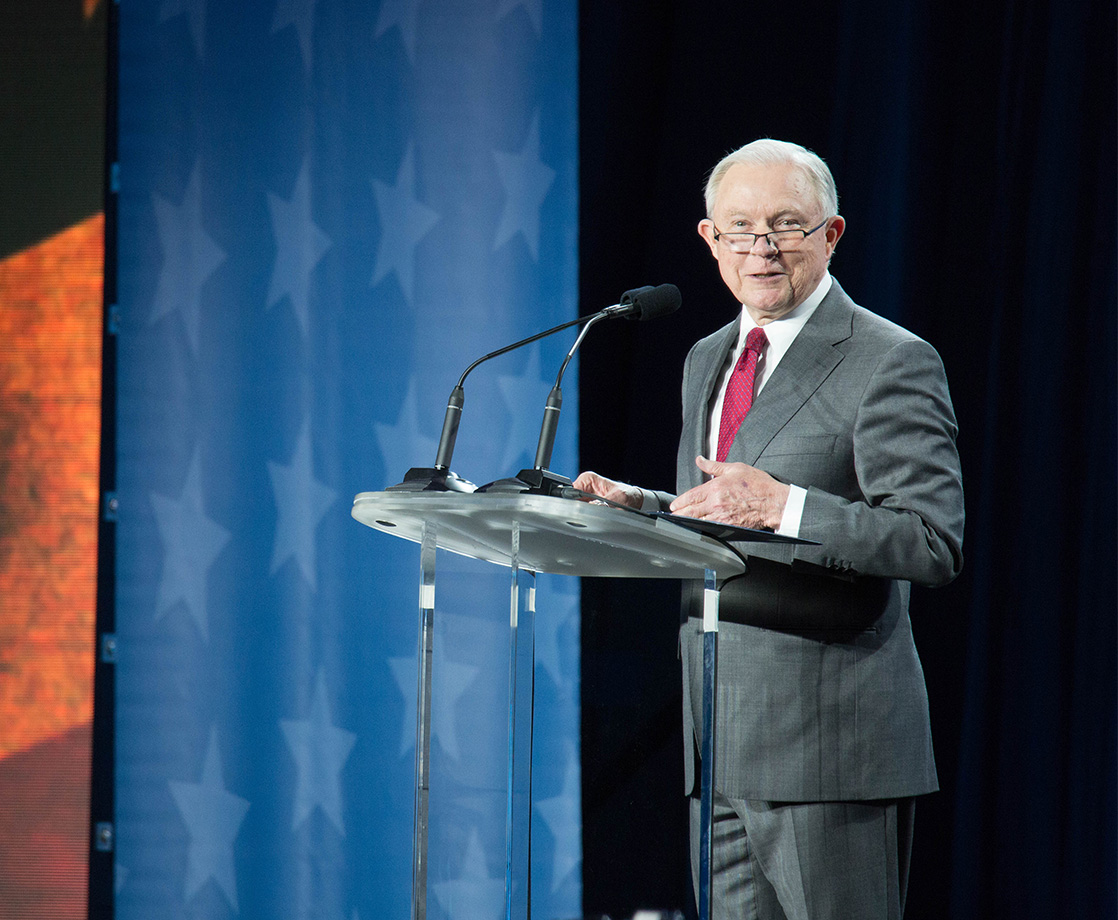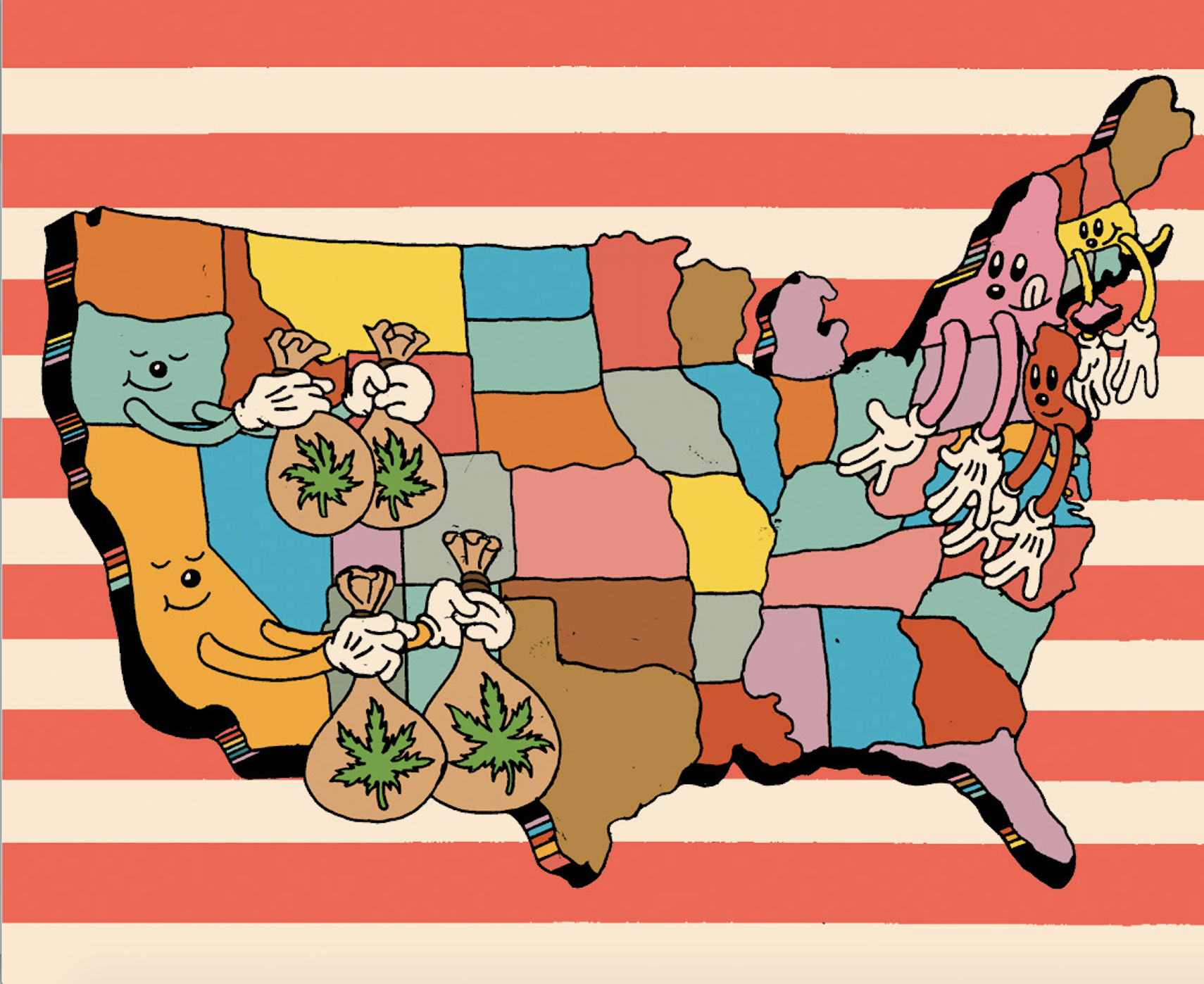Last Friday, two Republican heavyweights at the forefront of America's cannabis policies — U.S. Attorney General Jeff Sessions and Colorado Senator Cory Gardner — spoke at the Western Conservative Summit in Denver. Strangely, neither politician mentioned cannabis during his half-hour speech, despite Colorado being the first state to regulate recreational cannabis sales.
That Gardner did not mention cannabis at Friday's summit is especially odd, considering he made headlines the day before for introducing the Strengthening the Tenth Amendment Through Entrusting States (STATES) Act alongside Democrat Elizabeth Warren. The bipartisan bill would federally recognize cannabis programs approved at the state, territory, and tribal levels. It would also guarantee banking and other financial transactions for licensed cannabis entities, activities that are currently permitted only through a Treasury Department guideline.
The same morning Gardner delivered his speech in Denver, President Trump told a White House press pool that he would likely sign the STATES Act. "I support Senator Gardner," the president said. "I know exactly what he's doing. We're looking at it, but I probably will end up supporting that."
Gardner's bill is a countermeasure to Sessions' anti-cannabis policies. In May 2017, in a letter addressed to U.S. House and Senate leaders, Sessions requested the removal of the Rohrabacher-Farr amendment, a federal rule which prevents the Justice Department from using funds to prosecute state-approved medical cannabis. He wrote that criminal gangs operated within state-approved cannabis programs to traffic black-market cannabis to prohibition states.
Although the Rohrabacher-Farr amendment was eventually included in the 2018 federal spending bill (though now called the Rohrabacher-Blumenauer amendment), earlier this year Sessions rescinded the Cole memo, an Obama-era Justice Department guideline that prevented federal authorities from interfering with state-approved recreational cannabis. Despite outcry from the cannabis communities, rescinding the memo simply restored the authority to prosecute cannabis businesses to the states' attorney generals.
Rather than discuss weed, Sessions spent the first part of Friday's speech commending the recent U.S. Supreme Court ruling in favor of Colorado-based baker Jack Phillips. In 2012, the state charged Phillips of discriminatory business practices after refusing to make a cake for a same-sex marriage due to his religious beliefs. He was also ordered to tell his employees, which included family members, that his refusal to bake the cake was "wrong." After appeals, the US Supreme Court voted 7-2 in favor of Phillips' First Amendment rights.
Sessions described Phillips as "a courageous Colorado baker, who would not back down. Who stood for his beliefs, almost alone at times, it seems." He added that Phillips "overcame oppression."
The rest of Sessions' speech focused on America's rampant opioid epidemic within the context of illegal immigration and the criminal gang MS-13. The only drugs the attorney general mentioned were "Fentanyl, methamphetamine, heroin, and cocaine" with the most time spent talking about Fentanyl, an opioid that is more potent and deadlier than heroin or oxycontin.
"If we're going to end the drug crisis, we need a secure border," he said. "And if we're going to have a secure border, then we got to have a wall." The audience members joined him as they chanted in unison, "Build. That. Wall."
After his speech, Sessions briefly discussed cannabis during an interview with Colorado Public Radio at the summit.
"I can't guarantee [the cannabis industry is] free from any consequences for an act that is contrary to U.S. law," Sessions said. He noted the Justice Department prioritizes prosecution of "more deadly drugs" and does not concern itself with "small amounts of marijuana."
Why did neither Gardner nor Sessions mention cannabis during their speeches? It's possible that, despite their disagreements between federal law and states' rights, the two Republicans did not want to contradict one another during the summit. After all, the Western Conservative Summit is supposed to unify and embolden American conservatives, so establishing common ground would take precedence over highlighting a divisive issue. According to a Gallup poll conducted last year, the majority of Republicans now support cannabis legalization.
Another reason cannabis may have been off the table at Friday's summit: the event is co-chaired and organized by Jeff Hunt of the Centennial Institute, a conservative Christian thinktank. Last August, Hunt, a staunch Trump supporter, penned an op-ed piece for USA Today where he erroneously claimed "marijuana devastated Colorado."
When MERRY JANE reached out to Hunt about Gardner and Sessions' omission of weed from their speeches, he did not respond to comment.
Follow Randy Robinson on Twitter











